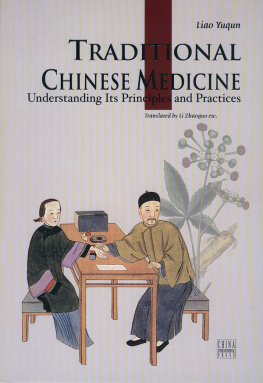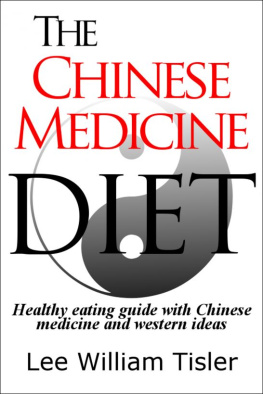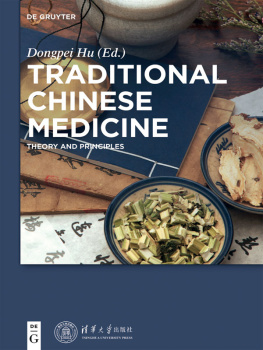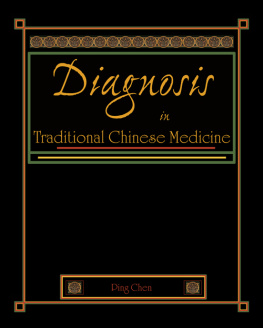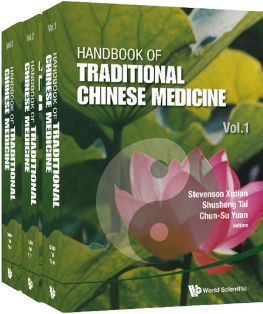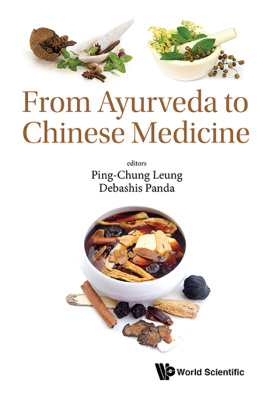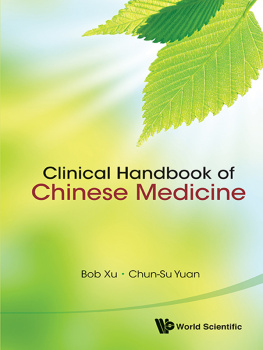Contents

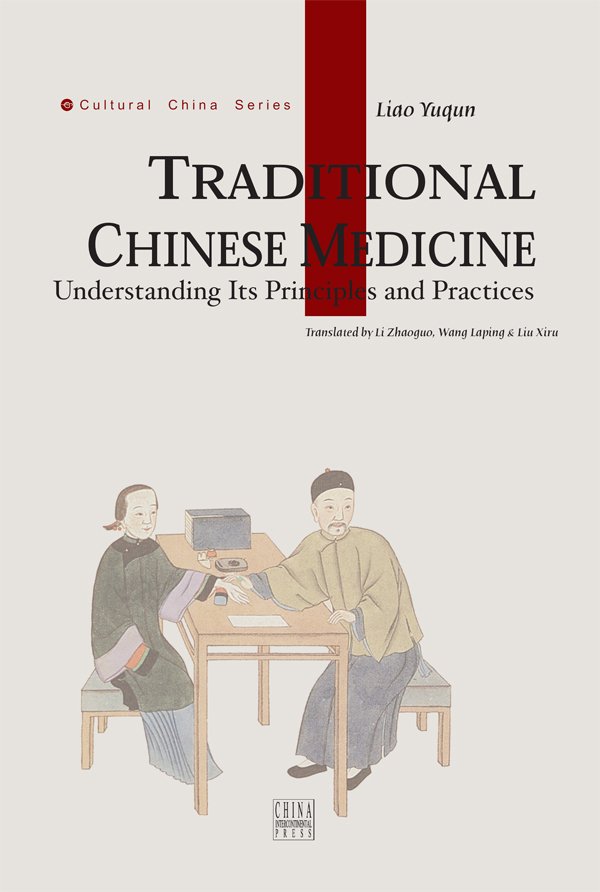
Liao Yuqun, born in 1953, graduated from Beijing Second Medical College in 1981, and now a researcher and director of the Institute for the History of Natural Science, Chinese Academy of Sciences, as well as vice-president of the Chinese Society of History of Science and Technology. His academic works include The Qihuang Medical Science, The Translation of Yellow Emperor's Canon of Difficulties in Modern Chinese, Ayurveda: Traditional Indian Medicine, Imagery Thinking of Traditional Chinese Medicine, etc.
Foreword
I n ancient China, four well-developed areas in the civilization were astronomy, arithmetic, agronomy and traditional Chinese medicine (TCM). They were generally accepted as systems of knowledge and techniques with Chinese traditional colors, despite the fact that some people denied they were "sciences." In modern China, TCM is the only surviving subject among those four that hasn't been replaced by Western science, and it still plays a significant role in most Chinese people's life.
Since it was established at a time without the support of advanced science, how can TCM survive in today's society when modern health care is almost able to cover all the medical needs? Is TCM a science or cumulative experiences? Is it able to go further along its own path of development, or is it meant to be replaced by mainstream Western medicine? Questions like these concern many people.
In most people's eyes, TCM is a medicinal system that dates back several thousand years, and its theories, experiences and techniques are all derived from the same origin"tradition." However, when Western medicine is spreading across the country, its new system, which is greatly contradictory to that of TCM, takes turns to dominate the academy. It was known as a "revolution" in Chinese medical community. If fact, if we pay close attention, we will find a revolution in the history of TCM itself. After many big and small revolutions, today's Chinese medicine has become "contemporary TCM," which greatly differs from TCM in ancient times. So sharing a same region does not exclude changes.
Traditional medicine in China did not go through big setbacks compared to traditional medicine in other countries. It has always continued in social life and in the career of health care. Some say TCM is right alongside Western medicine, and many scholars from both home and abroad believe the reason is that Western medicine has still not become fully popular. So TCM is needed as a complimentary part of medicine, especially in rural areas. However, the most popular places for TCM are not in the most developed big cities. Correspondingly, many people in the countryside hope to get modern treatments when they are sick. In big cities, people are afraid of infections from medical examinations, as well as the potentially toxic side effects from chemicals and drugs, and many do not accept surgeries easily. They prefer to seek alternatives in TCM, in hopes of a more "natural" treatment. Such concern is growing day by day. This phenomenon might be seen as the"renaissance" of the traditional medicine in China in our contemporary age. Out of such needs, we can foresee that TCM will not die against the threat of Western medicine, but will continue to exist in its own special role.
Approach to Traditional Chinese Medicine
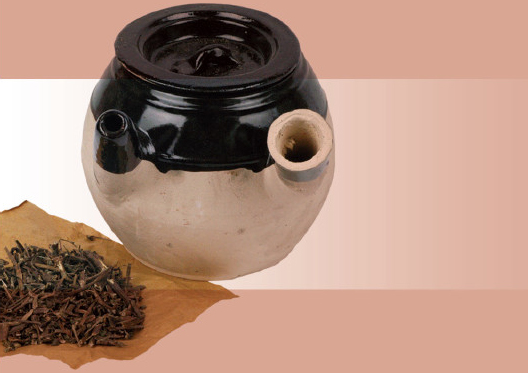
Recognition of TCM
Among the Chinese people, few have never visited any traditional Chinese doctors or tried any traditional remedies in their life. Even those who are healthy and have no chance to try medicine know traditional Chinese medicine. Though having no experience themselves, they would advise their relatives and friends to use traditional Chinese medicine to solve their health problems. There are some people who believe that traditional Chinese medicine is not scientific. But when they are ill and cannot be helped by modern medicine, they would change their mind and turn to traditional Chinese medicine.
These phenomena are quite normal. Think about the films of Beijing People in New York and Scraping. It will be helpful for you to understand these phenomena. In Beijing People in New York, A-chun was accused of maltreating child by her ex-husband when she asked traditional Chinese doctor to treat her child who suffered from arthralgia. The similar case was also shown in Scraping in which the father was deprived of the guardianship of his son because he used scraping therapy to treat his son.
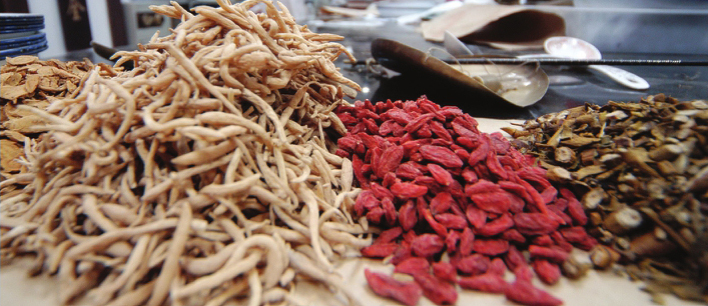
The medicinal herbs used in TCM.
Scraping therapy
Scraping therapy is a folk healing technique. By placing a pre-oiled instrument (water buffalo horn, jade, copper coin, smooth-edged ceramic, etc.) against the skin surface and scraping repeatedly until the skin turns crimson, scraping therapy helps to dredge meridians, remove blood stagnation, strengthen body resistance, eliminate evil, and prevent and cure disease. Modern science has proved that scraping therapy is able to expand capillary vessels, enhance secretions of sweat glands, and speed blood circulation. It is valuable in treating heatstroke, muscle ache, etc.
Now Western medicine is the basic method used to deal with medical problems. But why Chinese people still believe traditional Chinese medicine and take Chinese herbal preparations? Why Chinese people could not understand the attitude of the Westerners toward Chinese medicine shown in these films? The reason is that in the mind of Chinese people, traditional Chinese medicine is a system of medicine and can cure diseases. The value of such recognition is significant. Without such recognition, traditional Chinese medicine cannot continue to exist under the condition that modern sciences dominate over all the fields of knowledge and the thinking of common people. Then there pops up a question deserving further consideration. That is why Chinese people can recognize traditional Chinese medicine when all the people take modern sciences as the foundation of knowledge structure and worship "science" in their heart.
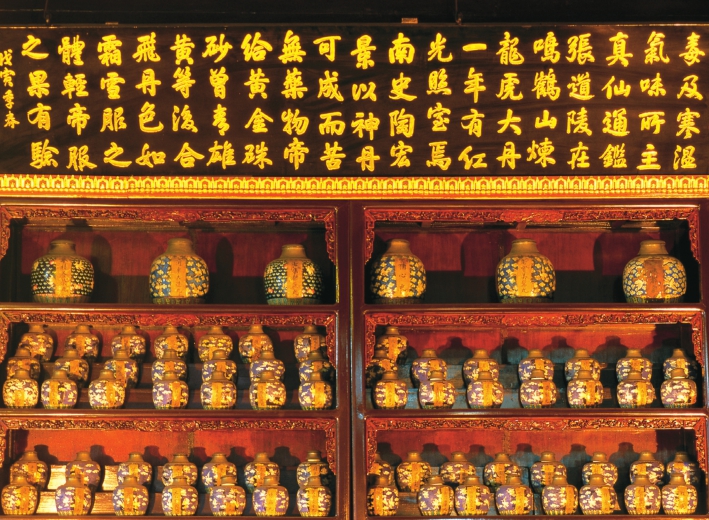
Traditional herbal medicine shop.
The common explanation about why Chinese recognize TCM is that China is large both in territory and population. When Western medicine was introduced into China, it, for a long time, could not meet the need of healthcare vast in rural areas and remote places. That is why TCM is always resorted to as a supplementary remedy. Another reason about such a phenomenon commonly accepted is that Chinese people are conservative and are accustomed to traditional practice.
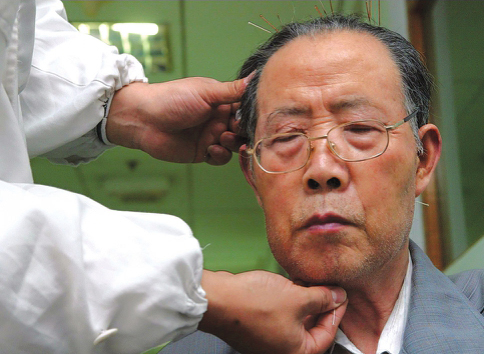
Treatment with acupuncture therapy.
However the reality facing us today is that the price of Chinese medicine is in no way lower than that of Western medicine. Obviously economy cannot fully explain such a tendency. One important point has to be noted. That is people usually turn to TCM at any cost when modern medicine has failed to solve their sufferings.

